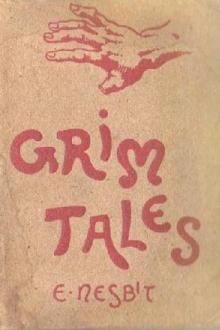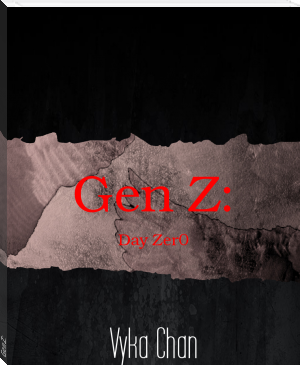Callisto 2.0, Susan English [i love reading .TXT] 📗

- Author: Susan English
- Performer: -
Book online «Callisto 2.0, Susan English [i love reading .TXT] 📗». Author Susan English
“True believers?” Tanya raised an eyebrow.
“I suspect you and I had similar experiences growing up.”
“Ah, I see.”
I looked deep into Tanya’s hazel-green eyes—yes, she understood. “I never could believe like they do.”
“No, you’re a scientist.”
“Science and religion aren’t exactly mutually exclusive,” I said, or was that my mother’s thought? It was another of her mantras, not those words, perhaps, but the sentiment. Forever trying to save my soul.
“Science and stubbornly clinging to dogmatic beliefs, even in the face of contradictory evidence, most assuredly are mutually exclusive,” said Tanya. “Though the behavior is not only the purview of adherents of organized religion—plenty of people find it difficult to accept new ideas.”
“That’s true.” I studied the smooth surface of the table, running my fingers along its 105
edge. “You know, I get someone being spiritual, I’m the first to admit there are things in this life science can’t explain. Science can only answer questions which are testable and falsifiable.” I lifted my eyes to hers. “Many of humanity’s most basic questions lie outside the scope of science.”
“Well put!”
I gave Tanya a subdued smile. “And it’s not like scientists claim to have all the answers. A preponderance of evidence doesn’t mean something is an immutable truth.
Any scientist worth her salt knows that.”
“Yes, but say that to a ‘true believer,’ as you call them, and they conclude science supports their ideas because scientists can’t say with certitude they are wrong.”
“Those people don’t understand the scientific process. They don’t get that a hypothesis is tested over and over again, hundreds or even thousands of times, and if it’s not shown to be wrong, it gains merit in the scientific community.” I took a breath, warming to my subject. “So, we can consider it to be a good model of the physical world. Then we can alter and refine our hypotheses, so any predictions fit the observations. That doesn’t mean we accept anyone’s notion as true, just because they think it’s true.” I stopped myself, a little embarrassed, realizing Tanya knew all this. Was I really talking to Tanya, or was I talking to my parents, desperately trying to get them to understand my point of view? I strongly suspected the latter.
“Exactly. We all have opinions, but the function of science is to use actual data to support or refute explanations of observed phenomena. Scientists back up claims with hard data, not opinion or speculation.”
My entire body relaxed—I hadn’t realized I had been so tense. “Scientific inquiry encourages us to think systematically and critically. It’s an amazing tool that helps us gain a deeper understanding of the world around us and our place in the Universe, and to make informed decisions about our lives and our communities. My study of science inspires me to appreciate the beauty and complexity of nature. I don’t need a god for that.”
“You’re preaching to the choir, my sister!”
I felt my face grow red. “Thanks, Tanya, and sorry. You don’t deserve a lecture!”
“Hey, I understand. You need to ground yourself in your personal worldview, which, by the way, I share, after talking to your family. I know how it is. Sometimes you question your own reality, your ability to reason and think logically.”
“You’re right. I just go a little crazy sometimes. Growing up in a world full of logical fallacies and superstition wasn’t easy.”
Tanya gave me a gentle look.
“What always got to me is the blind faith in a hodgepodge of poorly written ancient texts, so much contradiction and pretty bizarre claims and rules.”
“You mean, for example, ‘Thou shalt not sow thy field with mingled seed’? The worst possible advice for farmers. Everyone knows a diverse field is more robust, more able to withstand pests and plagues. Look at the farming disasters that went along with 106
monocrops.”
“For me it was the cruelty. Once I took a marker to my parents’ Bible. They have a physical book. I wanted to highlight all the places where the biblical god ordered the death or destruction of innocent people. You know, to point out his wrath and lack of mercy, his ruthless vindictiveness against people who believed in a different god, the passages where he ordered the slaughter of children, where he not only condoned but encouraged rape.” I shook my head. “I stopped after highlighting almost every line for the first dozen pages I had turned to.”
“I’ll bet your parents were thrilled.”
“They didn’t think it was a particularly good exercise. To be honest, I don’t think either of them ever read the Bible, not in its entirety, anyway. Only the bits and pieces the reverend at their church tells them to read.” I looked down at my hands. “For a few years my parents worshiped Zeus and Hera, and the whole Greek clan,” I said, my voice barely over a whisper. I hadn’t told anyone that, not even Olivia. It felt like a betrayal, like I was shining a light on a shameful secret. I regarded Tanya, trying to gauge her reaction.
She looked surprised, but not shocked. She understood this part, too, I realized. The part about being from a family like mine: the confusion, the shame, the love, the pain, the stifling dogma that flew in the face of logical reason, all of it. Thank you, Tanya, I said silently. Thank you for understanding and not judging. I shrugged, feigning indifference, though my stomach was in knots. “There was a revival of ancient Greek religion in California around the time I was born, and my folks met at a meeting. They were both in their early forties and had never been married. I don’t know for sure, but my guess is they were feeling a little desperate to find someone or something to give their lives direction. They were all about worshiping the whole pantheon, apparently.
That’s where I got my name, Callisto.”
“How interesting.”
“After a few years they were lured, or shamed, back to the ‘true’ word of god. Both of them were brought up as fundamentalist Christians. But by then, it was too late to change my name to something more biblical, like Sara or Ruth.”
Tanya reached over and squeezed my arm. “I imagine that your parents, like mine, are doing the best they can with what they know.”
My eyes filled with tears. I blinked rapidly.
She gave me a wry look. “I believe my gender identity crisis was the best thing that could have happened to me. Being so fundamentally different from my family and the rest of the people in my community helped me see everything: social norms, religious beliefs, all the underlying assumptions, with a critical eye.”
“But Tanya, they truly believe. Although I suspect there are religious leaders who are con artists, manipulating and exploiting people’s blind faith for their own personal gain.”
“Oh, that’s true, but I’d like to think they are the exceptions, not the rule.” She looked 107
me straight in the eyes. “I believe in the goodness of humanity, and I’m convinced the god who lives in the hearts of the majority of people is not the god of organized religion.”
“Thank god for that!”
Tanya broke into laughter.
“We’re an odd species, humans,” I said.
“That we are!” Tanya popped a beer ball into her mouth.
108
On Wednesday the prototype was finally ready! It was small, but big enough to test the warp bubble, and beautifully constructed: a sleek, ceramic, prolate spheroid shell, the size and shape of an emu egg, with two thick, wide rings, concentric with the spheroid’s long axis, attached at each end—the warp drive. We scheduled the test launch to coincide with the next staff meeting, and for the next two days I was a nervous wreck. The only way I could calm myself down was by sitting on a bench in the park, soaking up the greenery, or spending time in Naomi’s lab with the mice. I had gotten to know all of them, but Asteria was still my favorite. The feeling was, apparently, mutual. Every time I entered the lab, she had her eyes trained on me, and when I approached the condo, she would hurry to the door to be let out. Sometimes she was so excited to see me she would launch herself into space toward my chest and latch onto my jumpsuit with her tiny claws. Then she would scramble up to my neck and snuggle in. I loved the feel of her soft fur, her tiny nose, and the twitching of her whiskers.
Occasionally she would jump off my shoulder or my arm, swimming in micro-g, and I would have to scramble to catch her. It wouldn’t be so bad if she collided with the walls, since they were all padded, but the table and consoles were hard, and if she bumped into something rigid it was possible she could injure herself. I had to remain vigilant when she was in a particularly playful mood. But that didn’t matter—I absolutely adored her.
◆◆◆
The test day arrived, and the whole crew gathered on the observation deck. The plan was to deploy the prototype several kilometers from the station. Everyone kept looking toward the window, though it would be impossible to see anything from such a great distance, even if we had been facing in the correct direction. The test would be totally automated, with sensors placed in an array at various distances from the prototype, as well as within the prototype itself. The video feeds from the eight sensors—six outside the prototype and two within it—would be projected onto a plasma screen so everyone could watch. We weren’t sure if we would be able to see anything—the collected data would give us more useful information than our eyes—but it was exciting, nonetheless.
I sat between Hadley and Naomi, my eyes glued to the screen. We had already sent the





Comments (0)